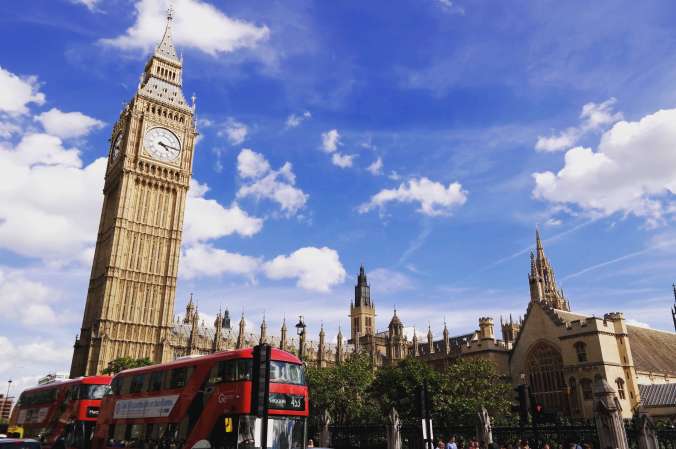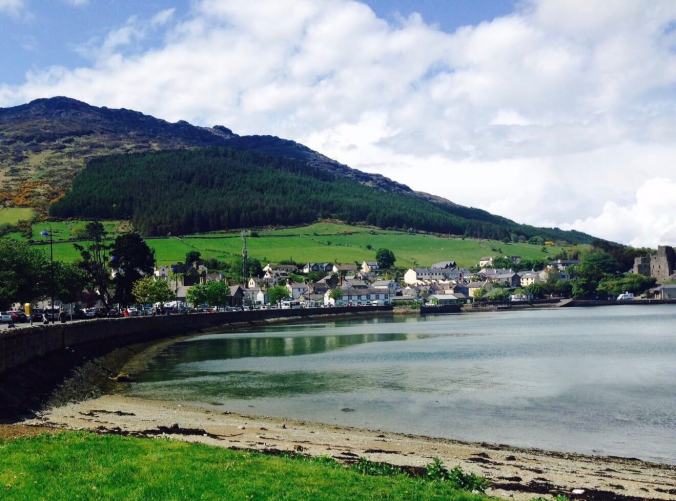Since we moved to Geneva last year, I’ve had some incredible opportunities to learn my husband’s native tongue of French — but I’ve also had the pleasure of expanding my English vocabulary from a purely American repertoire to one that understands that your Irish friend has not, in fact, just declared that she’s high (more on that later). Indeed, it turns out that the differences between American, British and Irish English extend quite a bit beyond the occasional “bloody hell,” and often can lead to some rather amusing confusion. I’ve been keeping a list of some of those particularities since I started grad school last semester, courtesy of my dear — American dear that is — classmates who call England and Ireland home. So without further ado, here it is: An American’s Guide to Understanding Your British and Irish Friends!
British expressions
- A biscuit for Brits is what we Americans would call a cookie; what Americans would call a biscuit à la Biscuitville apparently does not exist in England.
- Jelly in England is what Americans would refer to as jello. Hence, the Brits are particularly puzzled as to why we enjoy eating peanut butter and jelly sandwiches. And what we call jelly and put on our PB&J sandwiches is what the British refer to as jam. Got it?
- If you’re looking for eggplant or zucchini in the Isles, you’ll need to practice a little French. The Brits refer to those veggies by their French names, aubergine and courgette respectively.
- For the British, sweet corn is identical to what Americans would simply refer to as corn, as in corn on the cob or corn in a can. I’m still confused as to the alternative… salty corn?
- Crisps in the UK are equivalent to what Americans would call chips — Not to be confused with chips in the UK, which are what we would refer to as french fries.
- If your British friend is pissing mad, that’s pretty darn mad — but a step below f-ing mad, so good news 🙂
- Separately, if your British friend says she’s going for a wee, you’ll want to giggle, but that’s apparently a totally normal way to say you’re going to the bathroom. And for our part, the Brits want to know why we call it the “bathroom” when, in fact, it doesn’t always have a bath.
- A vest for Brits is what Americans would refer to as a tank top — a shirt you would layer under your sweater, for example. What we call a vest, they would call a gilet.
- When Americans say we’re looking for black pumps, we mean high-heeled shoes. When the Brits say they want black pumps, they mean flat shoes like tennis shoes.
- One more on clothing: When Americans hear the term dungarees, we think jeans — but the Brits are referring to what we would call overalls. Farmers, take note.
- If your British friends are looking for a car hire, they are not, in fact, in search of a chauffeur but want to rent a car.
- When a Brit says something costs 50 quid, she is not referring to an exotic currency you have yet to hear of. It’s slang that is basically equivalent to saying “50 bucks.”
- If you’re out shopping and a British friend says a dress is dear, she’s probably not going to buy it. What Americans use as a term as affection, the Brits use to say something is expensive.
- Gui’s personal favorite: A little girl learning to ride a bicycle in England will use stabilisers to help her balance — or what we Americans would refer to as training wheels.
- If a northern Englishman invites you to come for dinner, he’s referring to what we Americans would call lunch. And if he invites you for tea, come with an empty belly — it’s an invitation to dinner, obviously.
- Honorable mentions:
- Bin = trash can
- Jumper = sweater
- Hen do = bachelorette party
- Braces = suspenders
- Salopettes = snow pants
- Bobble = hair tie
Irish expressions
- If your Irish friend says you should chance your arm, she means you might as well give it a try — not necessarily that you should put your arm in danger.
- Here’s the one I referred to earlier: When an Irish friend says she’s having the craic (pronounced like “crack”), she’s saying that she’s having a really good time. Thus, if an Irishman knowns you’re American, he may change his wording halfway through saying that he was having the craic to avoid any obvious misconceptions 🙂
- For the Irish, slagging someone means to make fun of someone in the least hurtful way possible, like playful teasing. Taking the piss out of someone is another way to say you are teasing them.
- When your Irish friend says she’s shopping for new brogues, she means new oxford-style shoes. Specific, I know, but it seems to come up a lot… or maybe we just go shopping too often.
- It’s flattering if someone from Ireland tell you that you’re so copped on. That one means that you’re really with it. Another compliment is describing someone as a dote, which means the person is really nice or cute.
- If your Irish friend says she’s going to buy a roll for lunch, there’s no need to offer her extra lunch money. While Americans would assumed she’s only purchasing a piece of bread, she actually means she’s getting a sandwich on a baguette.
- If someone from Ireland says that a lady gave out to him, he means that the woman told him off. I imagined something totally different on that one…
- Honorable mentions:
- Till = cash register
- Body warmer = vest
- Nail varnish = nail polish
- Tin = can
- Press = cupboard
- Gogo = hair tie
Now, I’m completely sure Americans say things equally as puzzling to the British and Irish as what I included here — in fact, I’ve seen quite a few comedians from across the pond highlighting the differences — so feel free to share your thoughts in the comments. I’ll keep my list going this semester and perhaps do a follow-up post later on.
Enjoy your week! And many thanks to my friend from Ireland for the above photo of Carlingford — The Emerald Isle is still is on my travel wish list 🙂


Haha! One of those is made up by Gemma, but I’m not going to tell you which one!
LikeLiked by 1 person
Quite frankly, she could tell me anything means anything and I wouldn’t know the difference 🙂 But which?!
LikeLike
Nice list! Have you heard for scallions are spring onions? (Irish)
LikeLiked by 1 person
I think we use both terms in the states! How interesting! Thanks for reading 🙂
LikeLike
Pingback: Munich & Neuschwanstein Castle: Fairy Tale Bavaria | The Plaid Shirt Diaries
Pingback: Plitvice Lakes: Spring Snow Showers | The Plaid Shirt Diaries